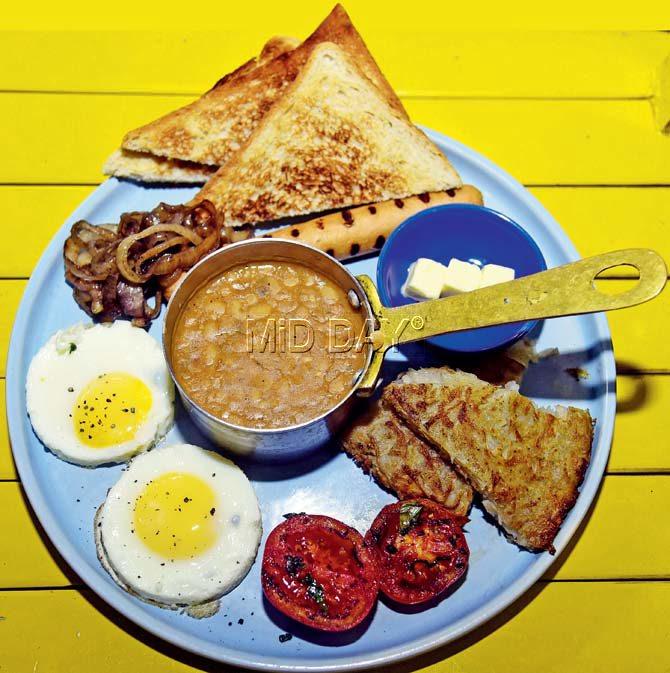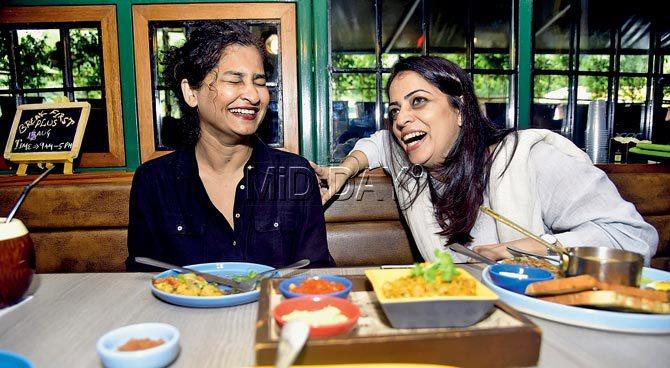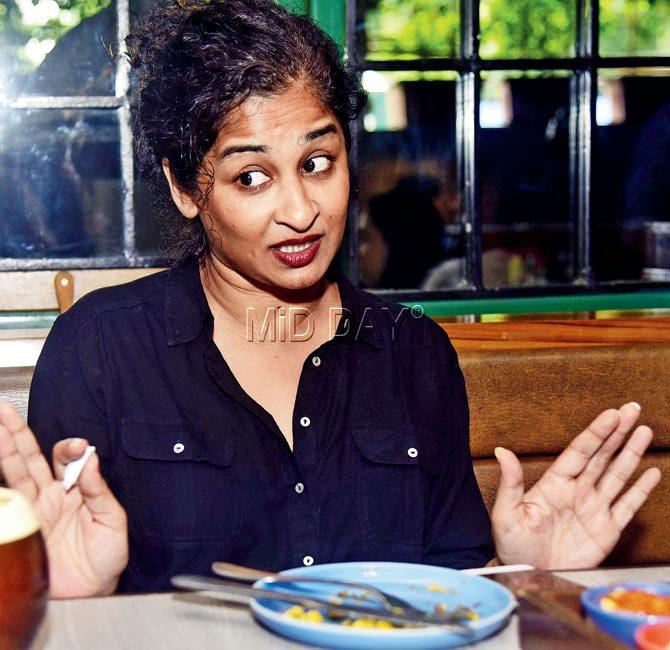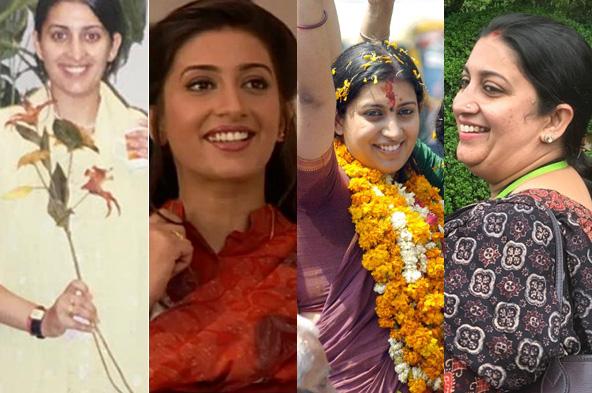We are privy to free-spirited, bold ideas and the handloom-inspired wardrobes of director Gauri Shinde and designer Anavila Misra as they bond over common loves


ADVERTISEMENT
Designer Anavila Misra and filmmaker Gauri Shinde are two busy friends, who meet once a year but pick up from where they left. “You have tied up your hair! I love curly hair,” exclaims Misra when she sees Shinde, who has rushed from a Sunday morning meeting. “Let me apply lipstick so I look presentable,” says Shinde, breaking into a smile.
Misra has just wrapped up fittings for a show that will close a day dedicated to sustainable fashion at an upcoming fashion week.
Shinde, who gained critical acclaim for English Vinglish and Dear Zindagi, does not have a stylist and prefers that her work does the talking. And yet, they find it possible to bond over fashion, among other loves.
Shinde excitedly orders Millet Upma and Waffle & Pop. Misra picks Lord Cubbon's Vice, an English breakfast where she skips the bacon. Sipping on coconut water, the duo roll into a conversation that's filled with laughter, mutual respect and high fives.

Sabhnani: You share a love of handlooms.
Shinde: Yes. I like anything that is in its natural form and uplifts local arts. To break stereotypes, I would love to wear a simple saree like Anavila's for a wedding.
Misra: Making a handloom piece is a 15-day process even before the yarn sits on the loom. Once you witness it, you can't return [to artificial fibres]. Unlike what's usually perceived, it's not difficult to work just with handlooms. Some will like my work; others will wonder what's got into her.

Ad and feature film director Gauri Shinde and fashion designer Anavila Misra at Monkey Bar, Bandra. Pics/Sameer Markande
Sabhnani: What makes up your wardrobe?
Shinde: I drift from luxury to high street to street. Celebs are under a lot of pressure to look good. People have thrown those things at me too, 'How come you don't have a stylist?' Picking your clothes is the most basic thing. If I open my wardrobe and can't figure what to wear, I would consider myself handicapped. But there are special occasions when I realise that I don't have anything to wear. But here, Anavila can open her store to pick an outfit! We have wardrobes; she has a store [both laugh].
Misra: You should never push yourself. If someone enjoys what he or she wears, they will look good in it. I might have the right clothes, but on busy days, it gets difficult to choose. I'm more organised now, I plan my outfits ahead according to my schedule.

Lunch arrives
Shinde: I have never had a savoury waffle. [Bites into the chicken] This is very good!
Misra: Left to myself, I would survive on fruit and salad. Eating a chapati is so tiring.
Shinde: Please tell me more about this strange side of you. This is laziness at a different level.
Misra: [Laughs] As a kid in Karnal, we had a huge kitchen garden, which was full of fruits and vegetables and we would pluck and eat everything fresh.
Sabhnani: Both of you avoid the formulaic route.
Shinde: Who will have the b***s to make this film was the question with English Vinglish. The protagonist was a mature housewife, in a saree. Everything was against me. Someone suggested that since Sridevi is in the film, I need to have her dance! It's why I also produced it. Either I make the film my way or I don't make it all. The same people who doubted me, chased me to produce Dear Zindagi, but I said no.
Misra: Wedding wear generates the most revenue. But whether I would enjoy doing it was the question. I asked myself, what will I wear if I love a saree and thought, 'Let's try linen.' When the first saree reached me, the weaver told me, 'Ma'am, humne bhej dia hai, par kaun pehenega yeh?' When I opened the courier, it felt like the birth of a child. This is what I wanted. It remains one of the happiest moments of my life.

Sabhnani: What would you like to change about your industries?
Shinde: The name! I think we will start making more original content if we stop mimicking. And yes, clean toilets for women in the industry. We don't want shared toilets; men don't know how to use toilets. And, we need to stop giving importance to who says what on Twitter.
Misra: Let's focus more on design. I feel designers are treating themselves as a mere resource centre for garments and textiles.
Also see: Then and Now: Smriti Irani's journey from a model to Union Minister
 Subscribe today by clicking the link and stay updated with the latest news!" Click here!
Subscribe today by clicking the link and stay updated with the latest news!" Click here!






